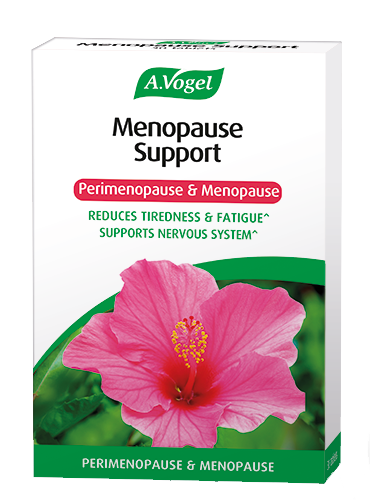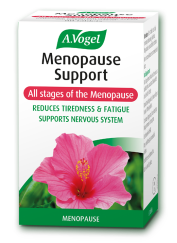Healthy eating for perimenopause and menopause
As your hormones start to change, your nutritional needs can go sky-high. And if you're not getting enough, then that can be enough to affect your symptoms and your general health. So, choosing the right food is not only going to support your overall well-being and how you feel, both physically and mentally, but these foods can help you manage some of the symptoms. Unfortunately, the wrong foods can make a lot of symptoms worse and also trigger some of the symptoms themselves. So, some of the symptoms you may be experiencing, that you're blaming on perimenopause and menopause, may be more to do with your diet rather than anything else.
In this blog, I discuss some of the basic dos and don'ts. We get so much feedback on this, and sometimes it's one really simple thing that you change that can make a complete difference to how you feel and how you can cope. So, it's worth just putting a little bit of effort into following these guidelines and seeing how you get on.
The Dos
Here are a few of the dos that I recommend when it comes to your diet and eating well for perimenopause and menopause:
1. Include enough protein in your daily diet
Protein is the building block of things like your muscles, organs, skin, hair, and nails, so it's a really important nutrient. There are even studies out there now showing that nutritional needs, especially post-menopause, actually increase. And if you're not getting enough, it's going to affect your muscle function, never mind anything else.
Some people find this a difficult one to increase. I don't like eating a lot of meat and it's not something I want to eat more of. So, if you're not keen on increasing your intake of meat, fish, and eggs, or if you're vegetarian or vegan, then go for a plant-based protein powder. There are so many good ones out there. Your health food shop and some pharmacies will have a really good range of natural ones.
2. Eat plenty of magnesium-rich foods
I like to call magnesium ‘menopause's miracle mineral’ because it's important for so many different things. You've got muscle function, mood, sleep, your joints, so all of these things. You need a lot of magnesium in your diet, so go for magnesium-rich foods such as grains and dark green leafy vegetables, or take a supplement if you feel it's necessary.
3. Have a good breakfast every day
This is very important. If you think about it, if you were going on a long car journey, you would check the car for oil, for fuel, be it petrol, diesel, or you've got to charge the battery. You would make sure there's air in the tyres and that there's plenty of water as well. You wouldn't even consider starting without doing that. Our bodies go through a long, long journey every day, especially during perimenopause when everything is changing, so you need to make sure that your body is fuelled correctly.
If you're one of these people who's not keen on breakfast, then again, go for a protein powder shake, and that will be enough to keep you going. A huge range of morning symptoms, like fatigue, brain fog, irritability, flushes, sweats, headaches, and palpitations, are very often caused by low blood sugar, not anything else at all. So, keep yourself well-fed when you get up, so that you can start your day off right.
4. Include phytoestrogen-rich foods in your diet
Phytoestrogen foods contain plant variations of oestrogen, which can gently help our bodies when our natural oestrogen resources are decreasing. So, foods like seeds, grains, and fermented soya foods can be really helpful.
So that's some of the dos. Really simple stuff whereby just changing your diet slightly can make a big difference.
The Don’ts
Here are a few things that you should avoid or not do when it comes to your diet and eating well during perimenopause and menopause:
1. Don’t skip meals
Again, I mentioned some of the symptoms above that low blood sugar can cause, so it's really important to eat regularly. Have healthy snacks between meals. I know, for me, if I miss a snack, if my meal is late, I get so irritable. It's unbelievable. I become a completely different person. So, I know, for me, that eating regularly is one of the things that keeps me very, very sane.
2. Don't restrict your diet
There are so many diets out there now that advise you to, "Don't have this. Don't have that. Only have this. Only have that". The more different foods you have daily means that you cover more of the nutrients that you need daily. So, have different foods every day. And again, we're creatures of habit. We tend to have the same thing for breakfast every day. Very often, we have the same thing for lunch every day, and we have much the same for our evening meal. That means that we're getting a very small range of nutrients we need.
I read somewhere that to get everything you need, you need to eat 42 different foods a day. Now, I like to think I have a very good diet. I eat lots of vegetables and lots of different foods. And I think I managed just over 30 when I actually sat down and calculated it. And you can't count foods twice. So, if you have a piece of toast for breakfast, you can't then count bread for lunch. So, this is maybe a little bit of homework for you all. Look back at a day's worth of food and just see how many different foods you have, and I bet you will be absolutely horrified.
3. Don’t avoid healthy fats
This is a huge one. Even now, if I'm doing workshops and I'm talking about having fat with every meal. Everybody's like, "No, no."
Fats are very important. They're vital in the perimenopause and menopause. We need healthy fats to provide the building blocks that our body needs to manufacture hormones. So here you are at the point in your life where you need more hormones, and you're depriving yourself of the very thing that's needed to make them.
I’m not talking about huge amounts of fat here. I’m talking about healthy fats, like extra virgin olive oil, avocado oil, and coconut oil. Try and have a small amount of these with each meal. If you're on a fat-restricted diet under medical supervision, you need to follow your practitioner's advice. But generally, healthy fats are great. We need them for our joints. We need them for our skin. We need them for brain function too. These are just a few areas where healthy fats are important.
4. Don't go too low carb
There are all these diets now where it's practically zero carbs. You don't need a lot of carbs. I find I function far better on a low-carb diet, but I wouldn't cut mine out completely. We need carbohydrates for fibre to keep our bowels working well, and to keep our friendly bacteria happy. But just go for the whole grain versions, like whole grain brown rice, and whole grain bread. Things like quinoa and buckwheat can be really good alternatives as well. So don't forget a small amount of those daily.
5. Don’t drink a lot whilst you are eating
This is something not a lot of people realise. Digestive problems can start up in perimenopause and menopause, and very often, it's due to our stomach producing less stomach acid, which causes problems breaking your food down.
If you drink a lot whilst you're eating, you're diluting all your digestive juices in the stomach, and that can lead to things like gastric reflux, indigestion, and heartburn. Drink plenty of water on a daily basis, but try not to drink within half an hour of eating, and ideally wait at least an hour after you've finished eating before you continue with your drink.

Are you Menopausal? Need help with your symptoms? Try our Menopause Symptom Checker.
Answer 3 question to find out if you could be menopausal and get personalised tips and advice straight to your inbox based on your results.
What else can help?
If you're struggling with your diet, if you're one of these people that doesn't like a lot of food groups and you're finding it difficult to keep your nutritional needs going, you can look at supplements. We have two that might be very helpful for you. We have our Balance Perimenopause Multi-Nutrient Drink, which includes magnesium, calcium, vitamin D, and zinc in a daily drink.
We also have our Menopause Support tablets, which includes soy isoflavones a form of phytoestrogens. So again, if you're not keen on adding phytoestrogen-rich foods to your diet, you could try this. And it's got magnesium in it as well, which is really handy.
A.Vogel Menopause Support | For Perimenopause, Menopause & Postmenopause Symptoms
£8.99 (30 tabs) In Stock
The other thing to remember here is that, as I mentioned before, our digestion can become impaired or sluggish as we start perimenopause and go through menopause itself. So, our digestion can become more sensitive to certain foods, and not cope as well, especially with junk foods. So, you might find that the foods you used to be able to eat, such as high-fat foods, or high-salt and high-sugar foods, which maybe didn't cause a problem beforehand, now cause you some digestive discomfort.
You might find that if you're out and you end up having a beef burger and chips or something, you feel really queasy or get a lot of indigestion or bloating afterward. It just means that your digestion is less robust, and you need to take a little bit more care of it.
So, I hope you found that one helpful. Honestly, sometimes as I mentioned before, it can be a tiny little thing you can do to change things that can make a whole heap worth of difference. So let me know if you've tried anything. Have you made just one little change that has made such a difference? It's made life much easier and better for you. Please share them with everybody. You know, as always, I like to read everyone's stories.
And until next time, take care and have a lovely week.
You may also find these topics helpful:
Worst foods & drinks for menopause
Is the Mediterranean diet good for menopause?






